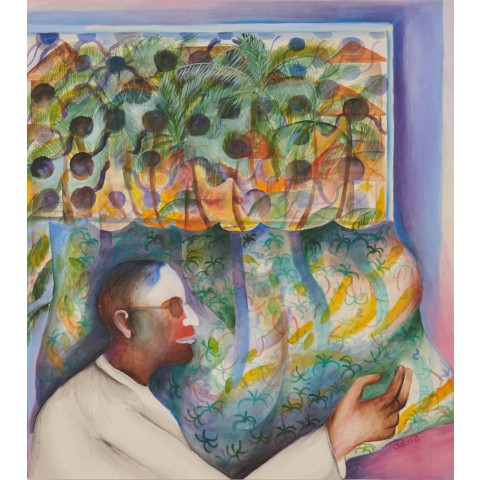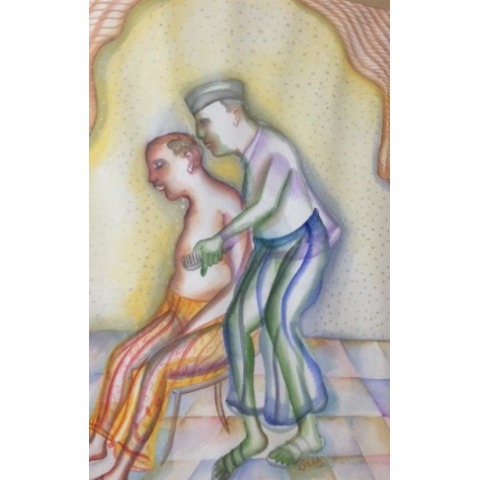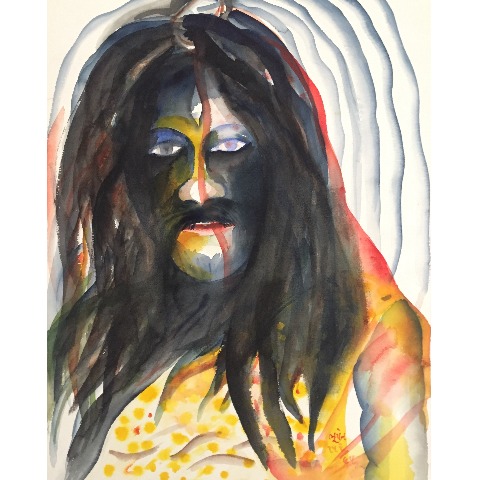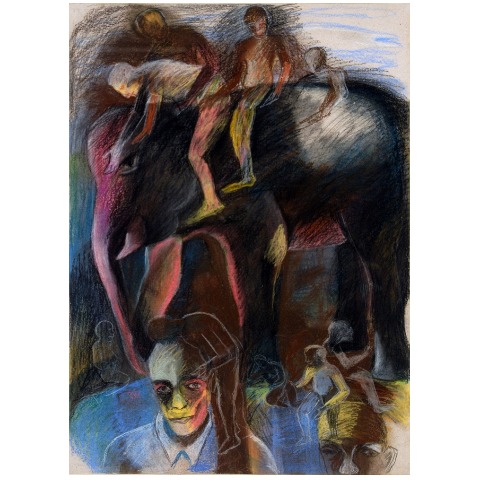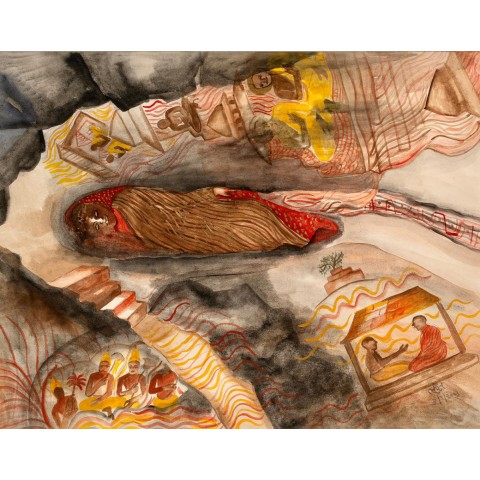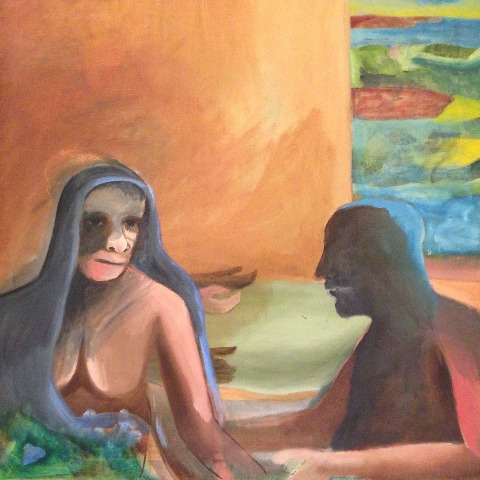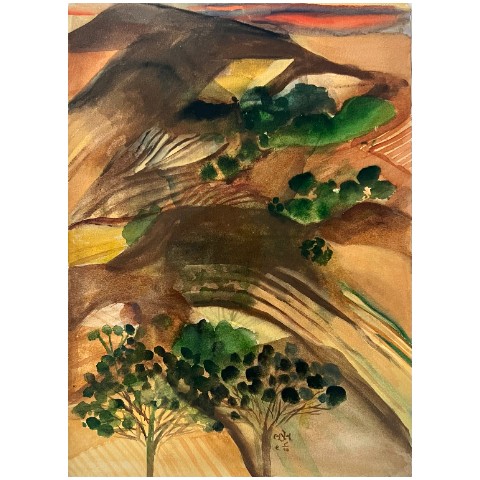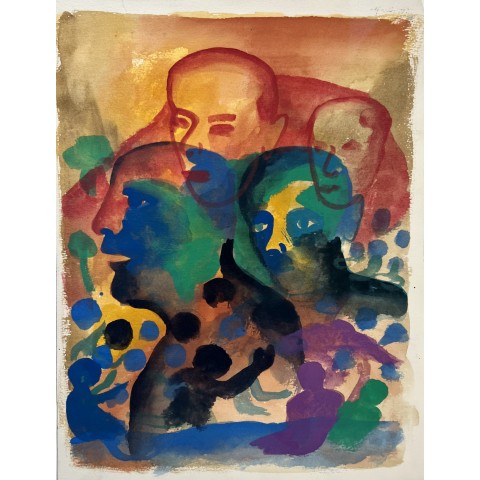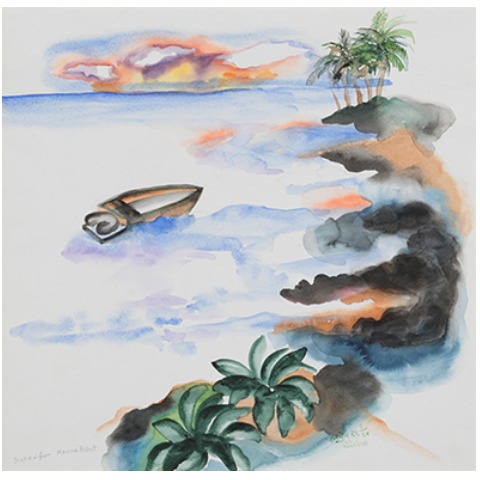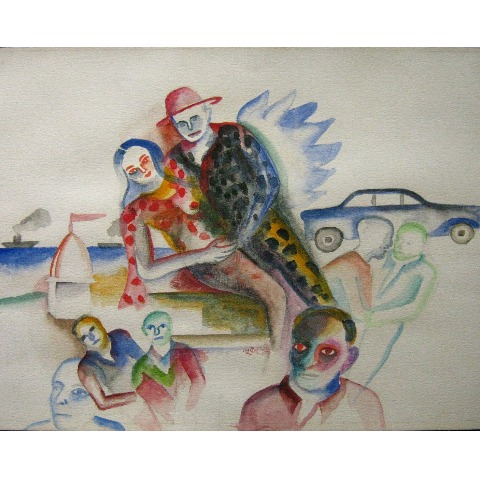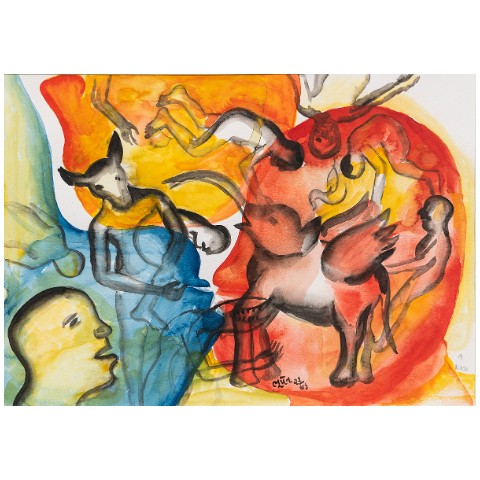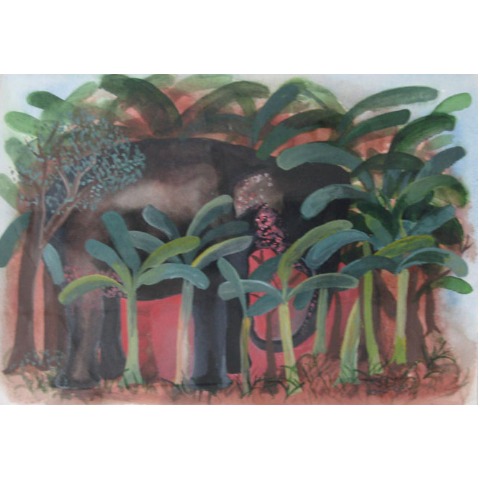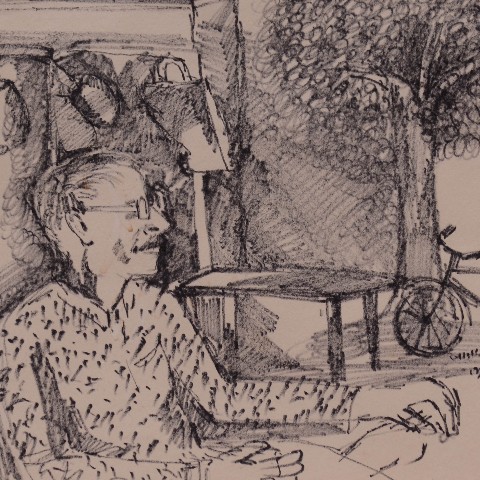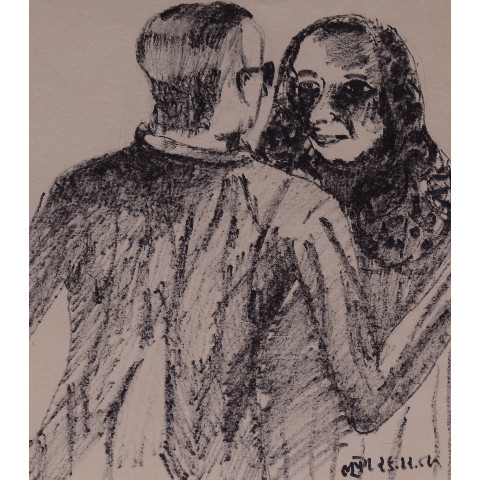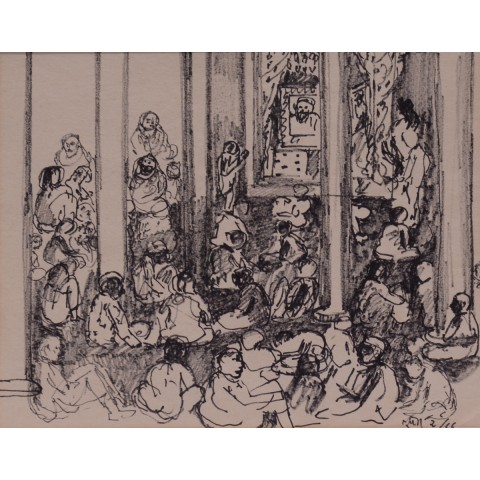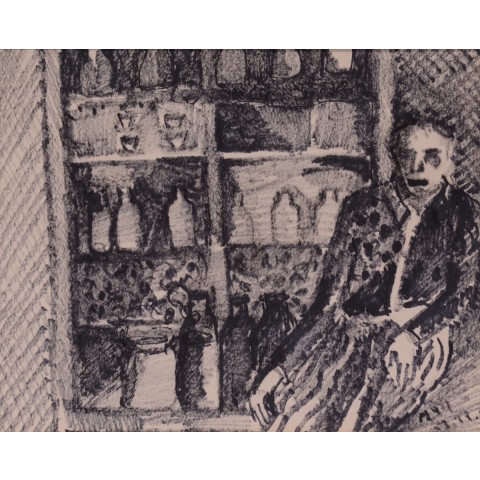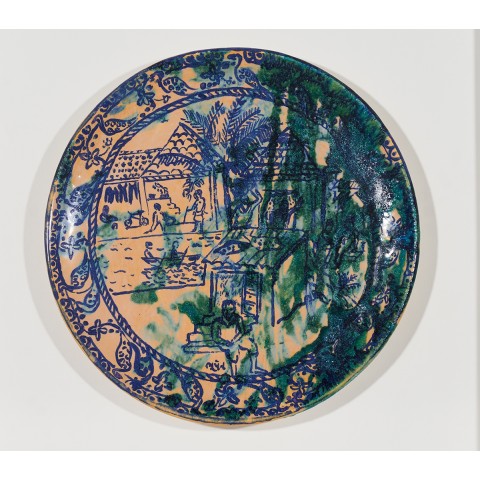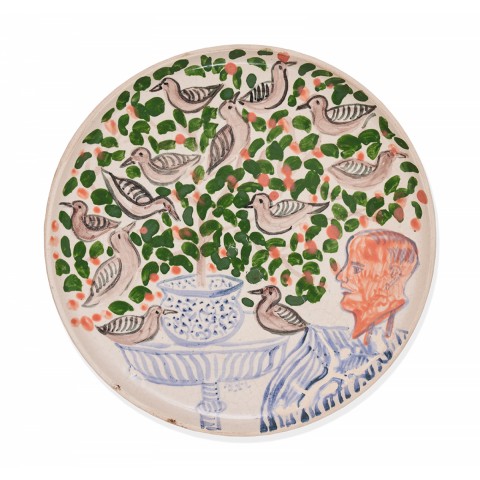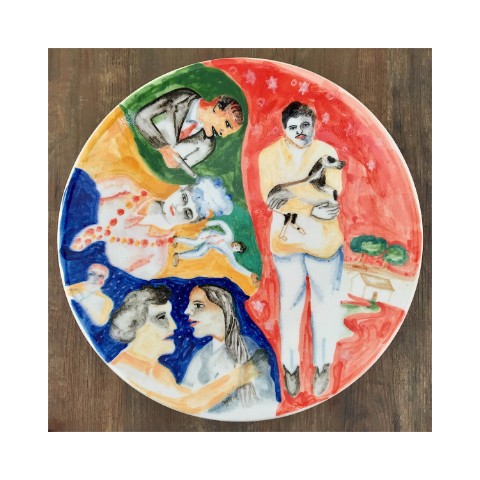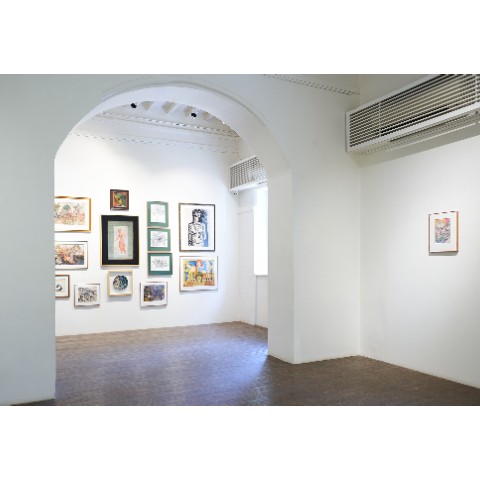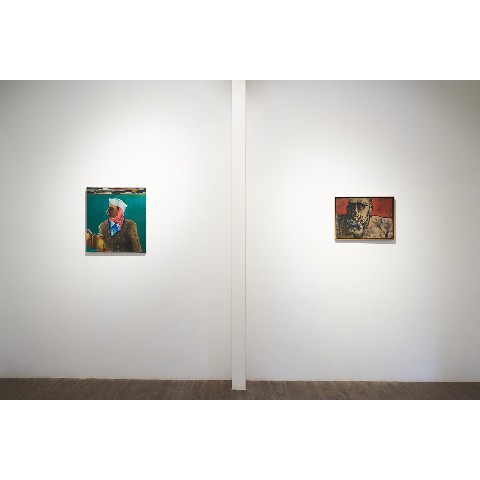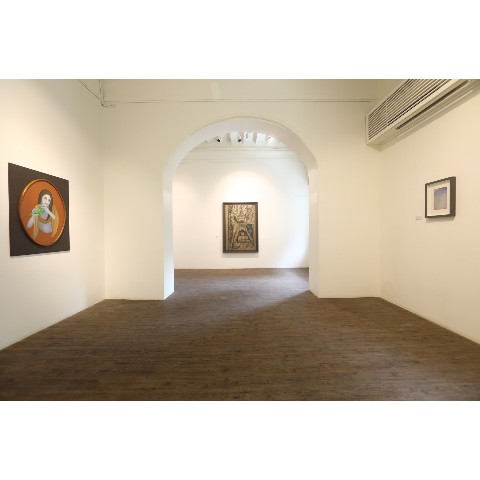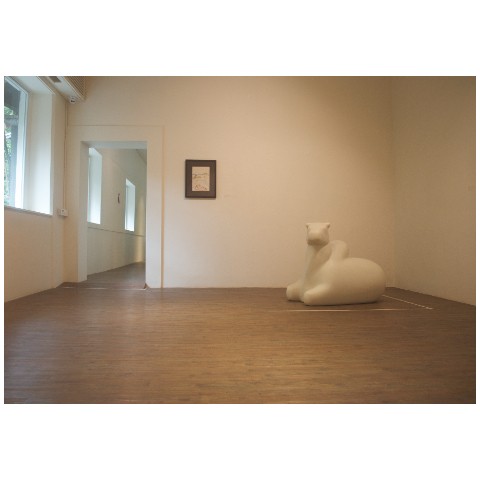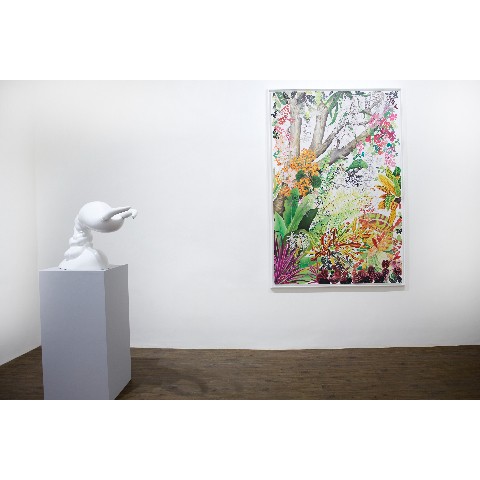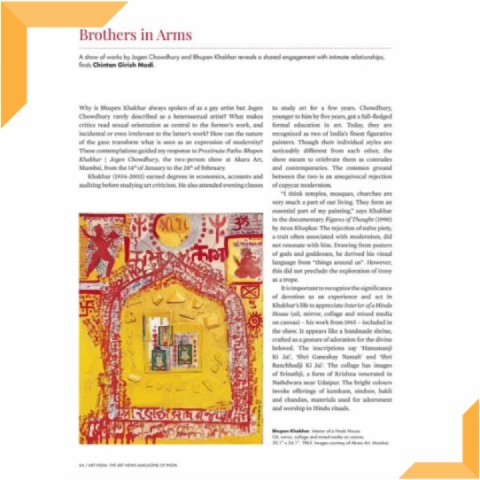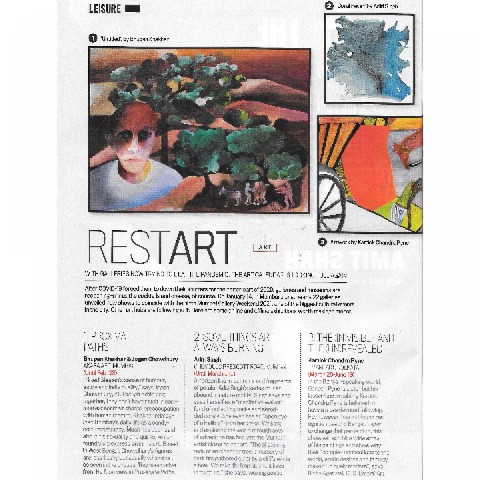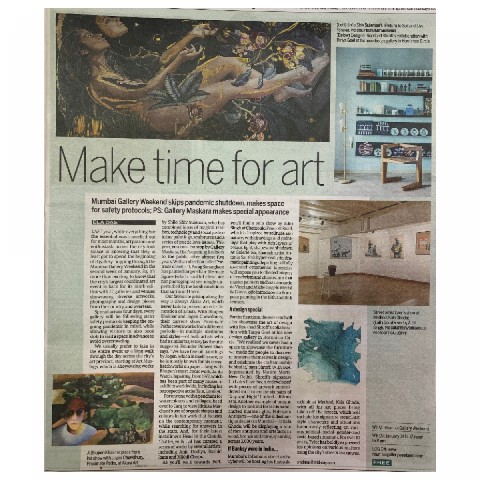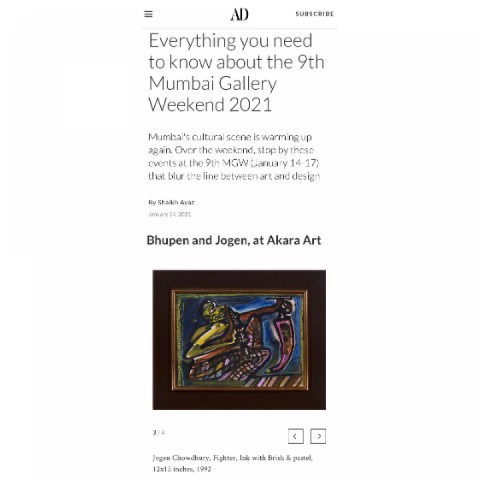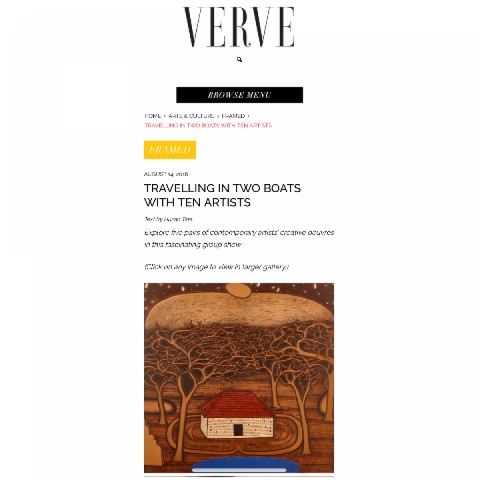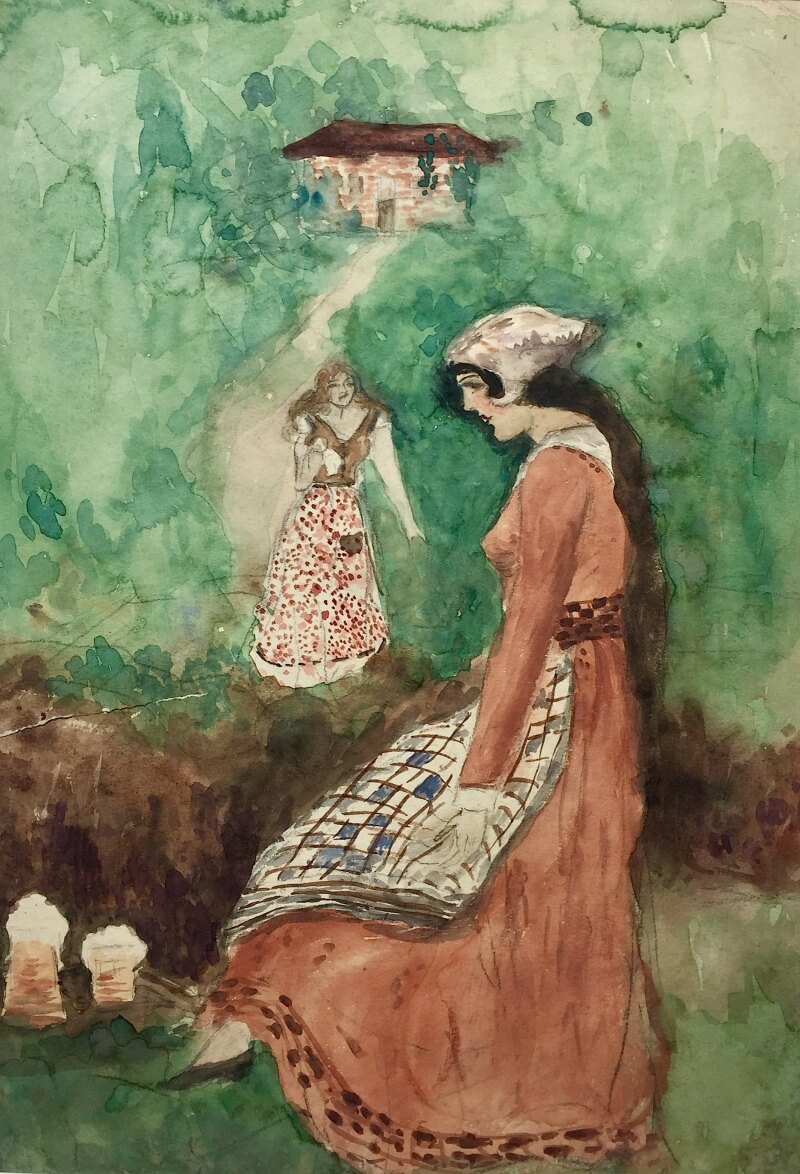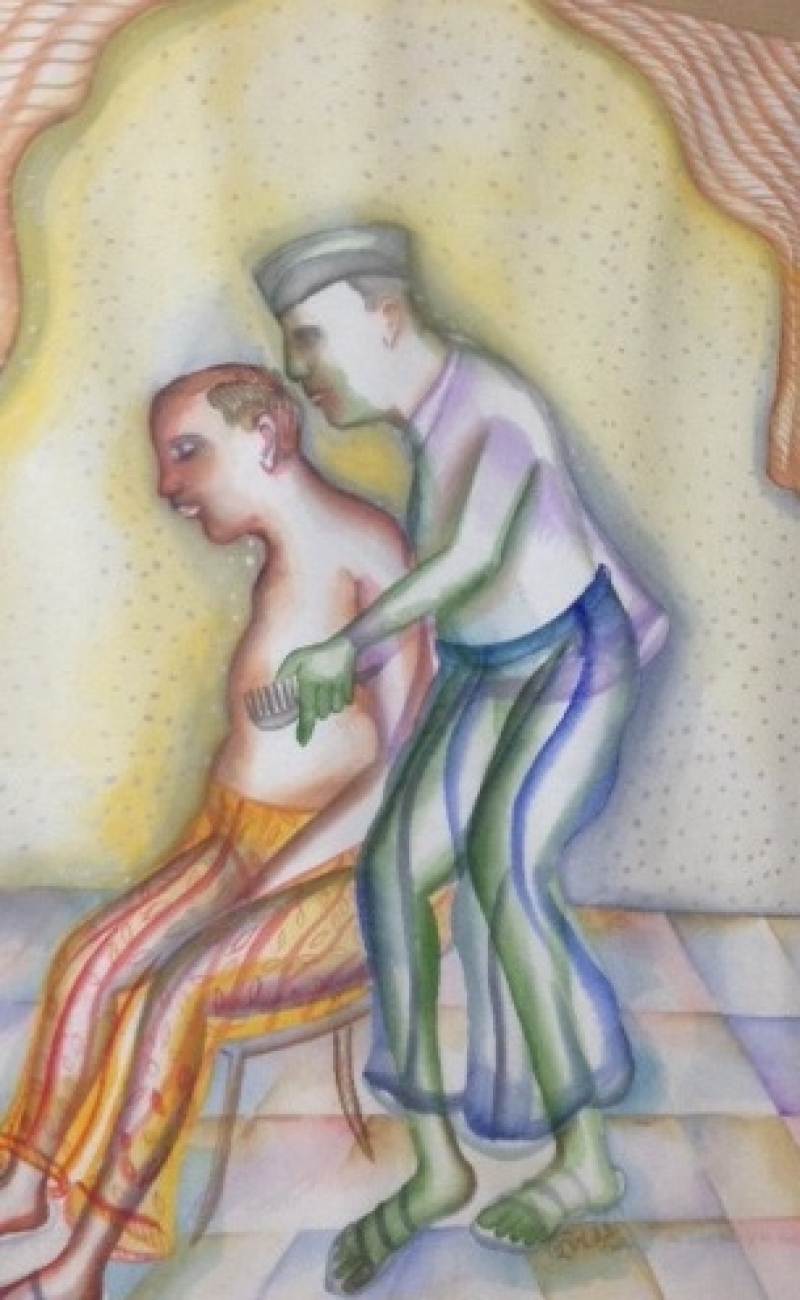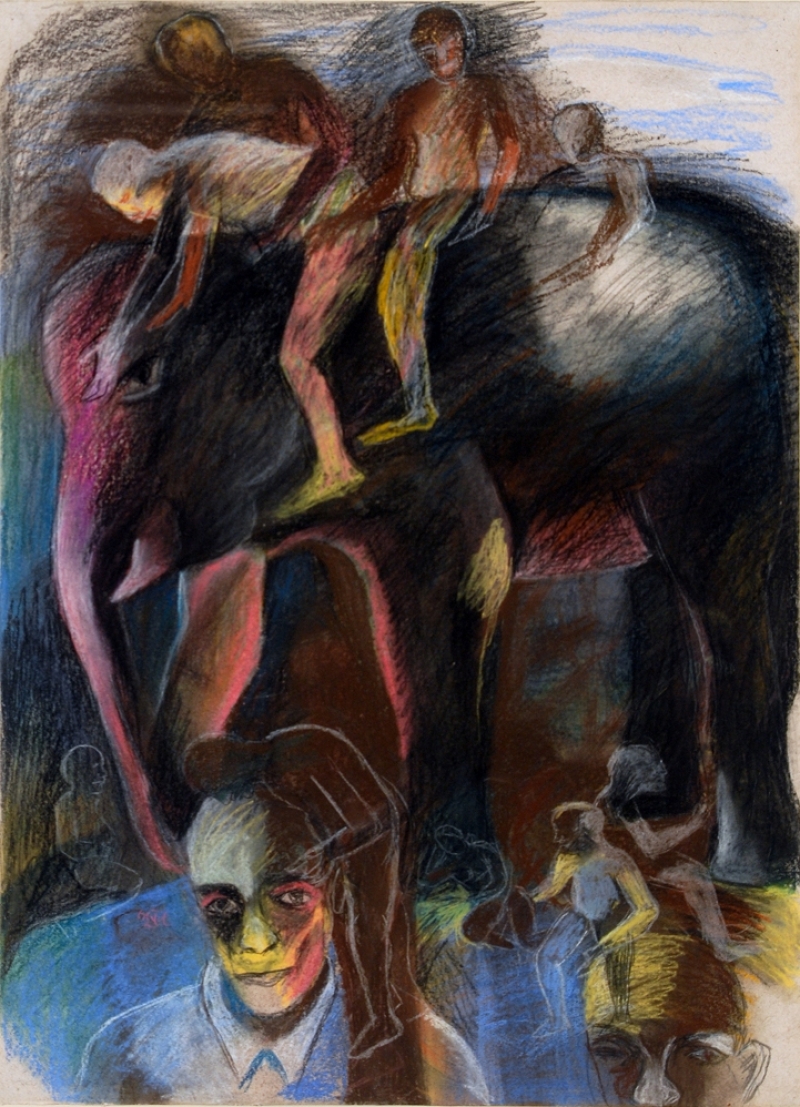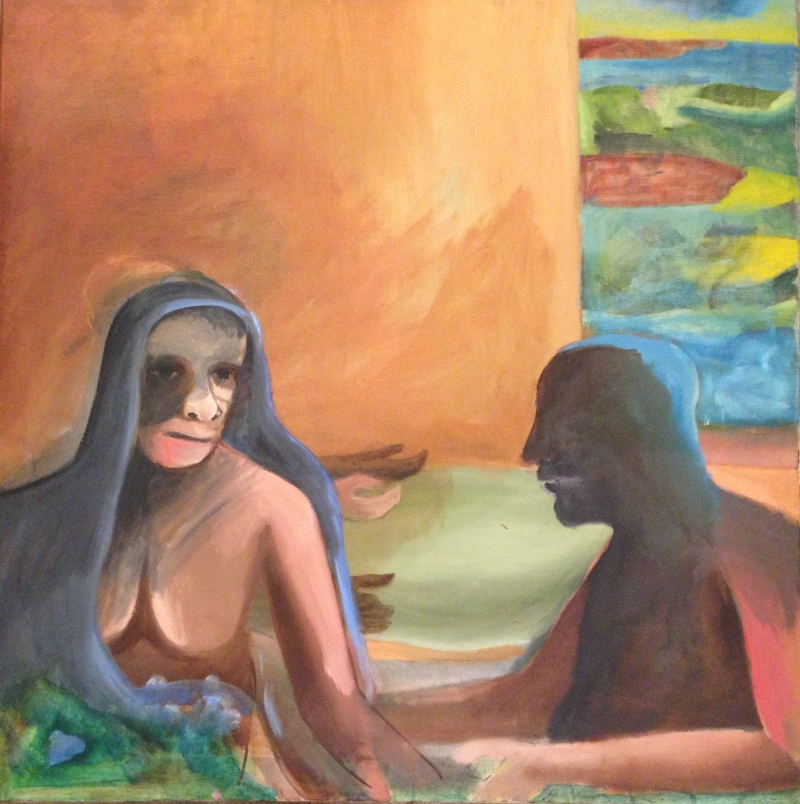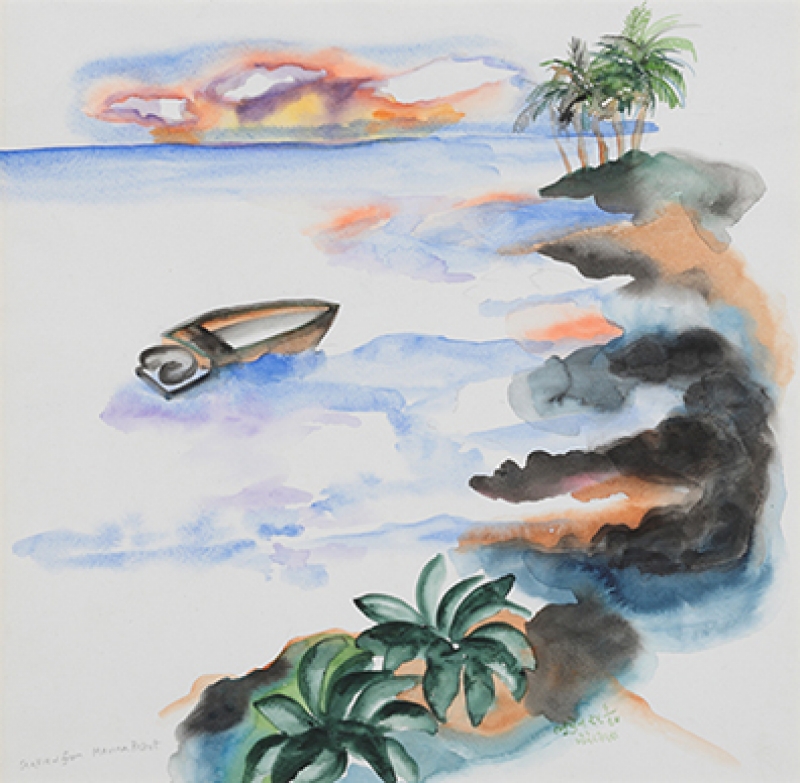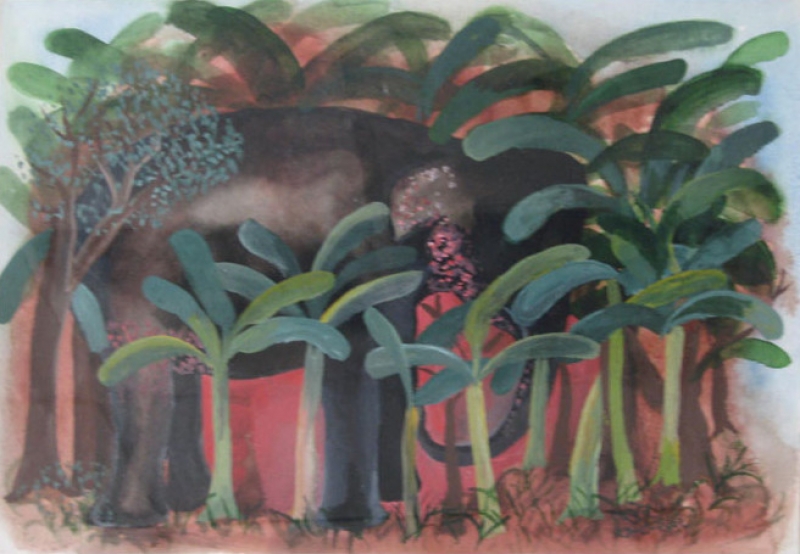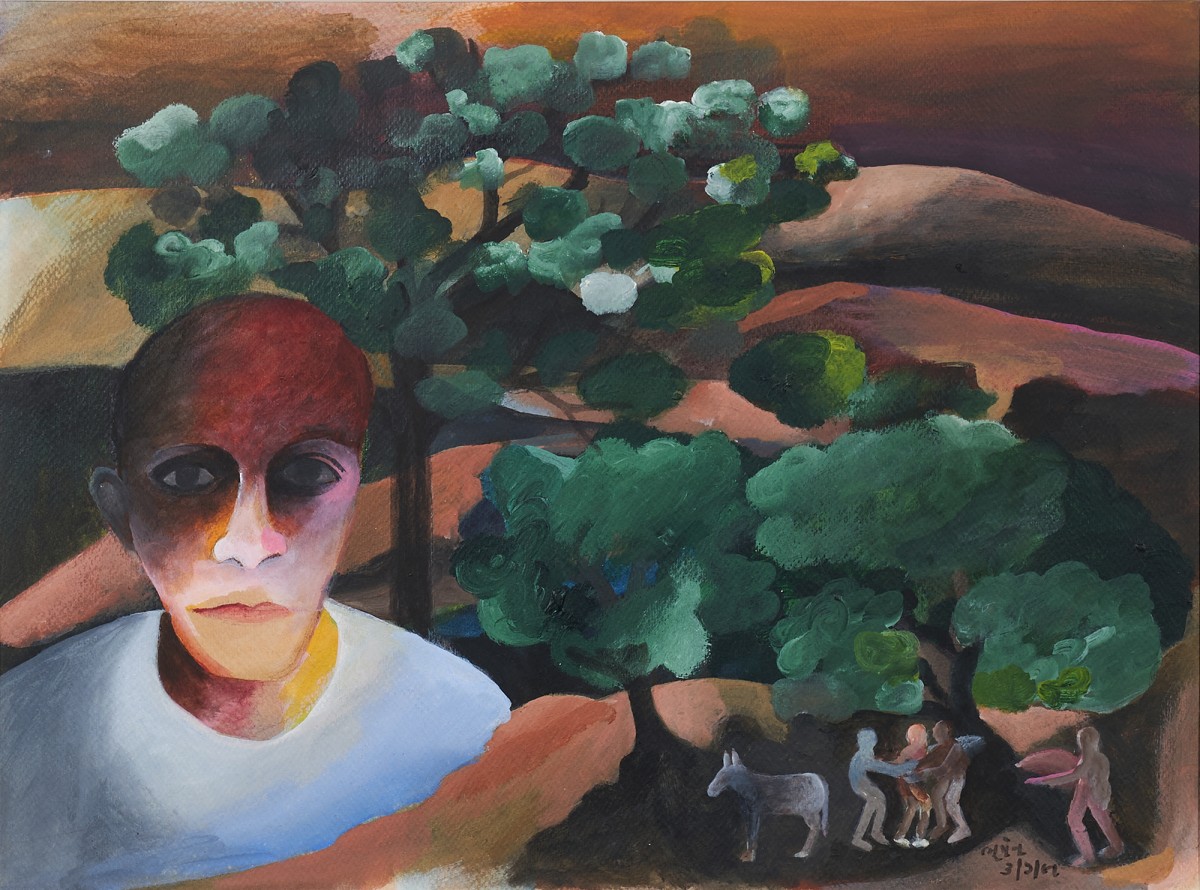
BHUPEN KHAKHAR
Akara Modern
1934 -2003
Born in Mumbai, Bhupen Khakhar was a
trailblazer in the era of modern Indian art. He may have started as a hobby
artist, but Khakhar knew in his heart that this was what he wanted to do in
perpetuum. Leaving behind a career in accounting, Khakhar went on to study Art
Criticism at the Maharaja Sayajirao University of Baroda. It was here that he
began painting and became involved with the seminal Narrative Figurative
movement.
Even though his career in art started
relatively late in his life, he went on to become an internationally acclaimed
artist. His figurative, often homoerotic work, offered insightful observations
of class, sexuality, and identity. Being queer, Khakhar explored the concepts
of gender, inclusivity, and coming out in his works. Most of what he made was
not restricted to working with canvas but also included watercolours, drawings,
etchings, collages, and ceramics. Using his art as paving blocks to document
the role of statuses within society and the ideas that marred an honest living,
Bhupen Khakhar aimed to encapsulate his own story through the eyes of the
other.
He held his first solo exhibition in
Mumbai in 1965 and has had several solo shows thereafter, in Mumbai, New Delhi,
Baroda, London, Ahmedabad, Amsterdam, Den Haag, Paris and Tokyo. His paintings
can be found in various private collections and several public collections
including that of the Metropolitan Museum of Art, New York. His works have been
exhibited across India and the world, including Akara Art, Mumbai; Grosvenor
Gallery, London; the Philadelphia Museum of Art, and the Jehangir Art Gallery,
Mumbai among others. Khakhar’s works have had far-reaching effects, and this
was proven in 2016 when the Tate Modern hosted Bhupen Khakhar’s first
international retrospective, “You can’t please all.” This retrospective brought
together five decades of his works from collections across the world. He was
awarded the Padma Shri by the Government of India in 1984.
Images
